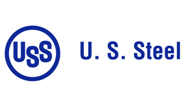Market Segment

July 21, 2022
USS Pulls Ahead Planned Maintenance on Mon Valley Blast Furnace
Written by Michael Cowden
US Steel plans to take an approximately one-month outage in September on the No. 3 blast furnace at is Mon Valley Works near Pittsburgh, a company spokeswoman said.
The steelmaker plans to apply shotcrete – sprayed concrete – to the furnace, she added.
![]()
Shotcrete is a significantly shorter and less expensive process than a full reline.
The work was originally scheduled for mid-October.
Mon Valley Works has two blast furnaces: No. 1 and No. 3. The No. 1 furnace has daily ironmaking capacity of approximately 3,200 tons. The No. 3 furnace has daily capacity of approximately 2,900 tons.
The furnaces are located at US Steel’s Edgar Thomson plant in Braddock, Pa. That facility makes slabs and rails them to the company’s Irvin Plant in West Mifflin, Pa., where they are rolled into sheet.
SMU has updated its blast furnace status table, found by clicking here, to reflect the development.
By Michel Cowden, Michael@SteelMarketUpdate.com







